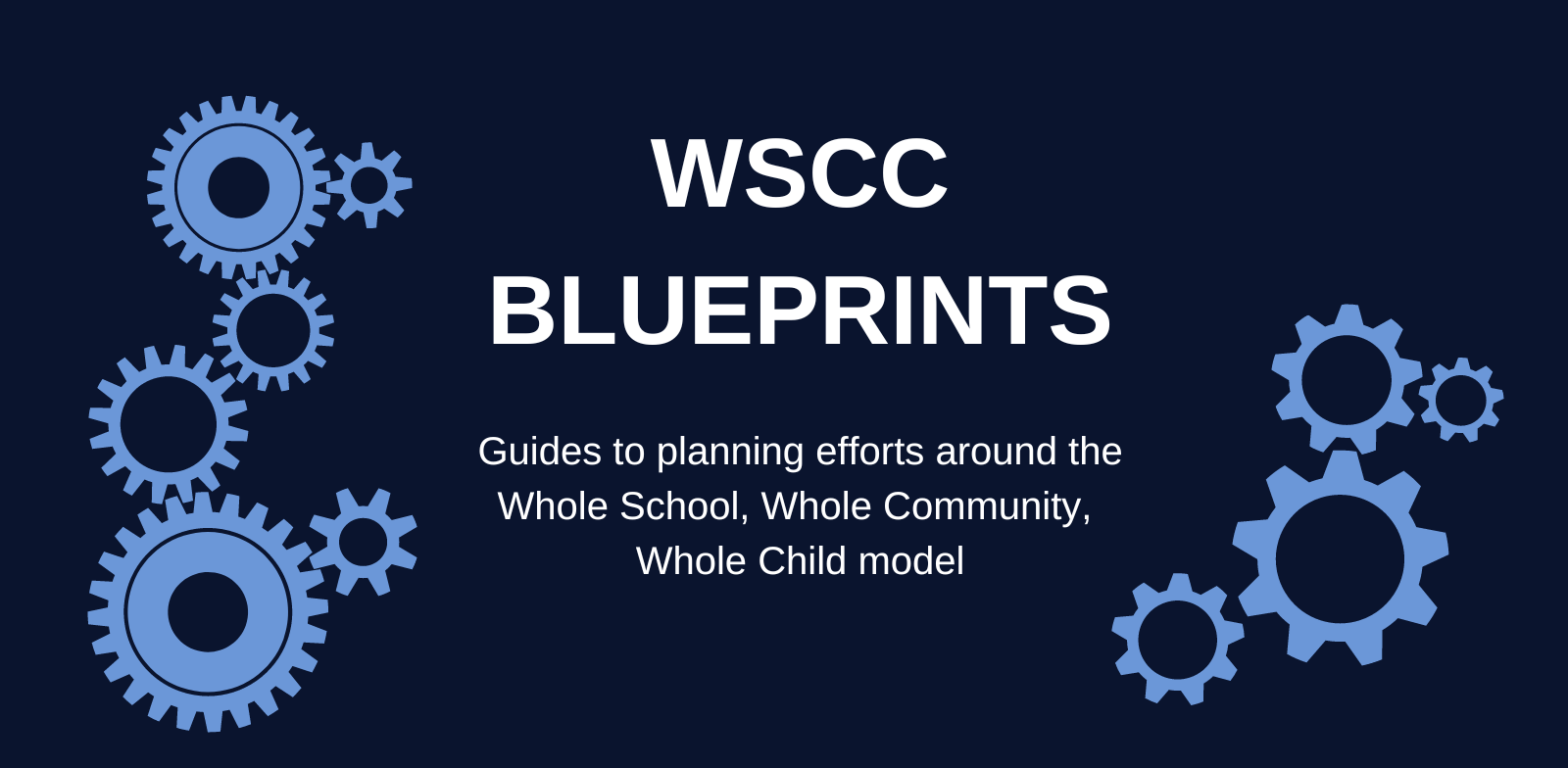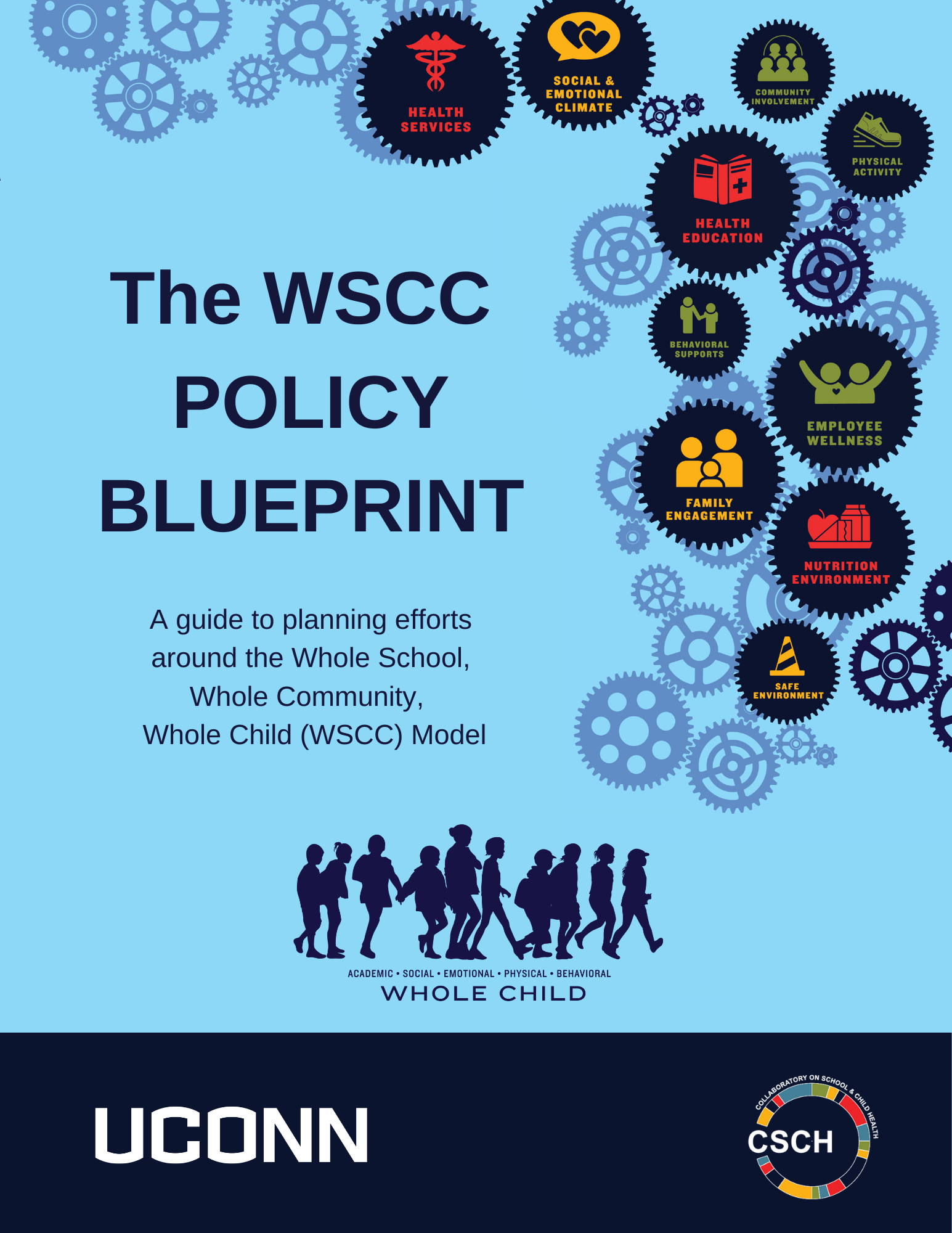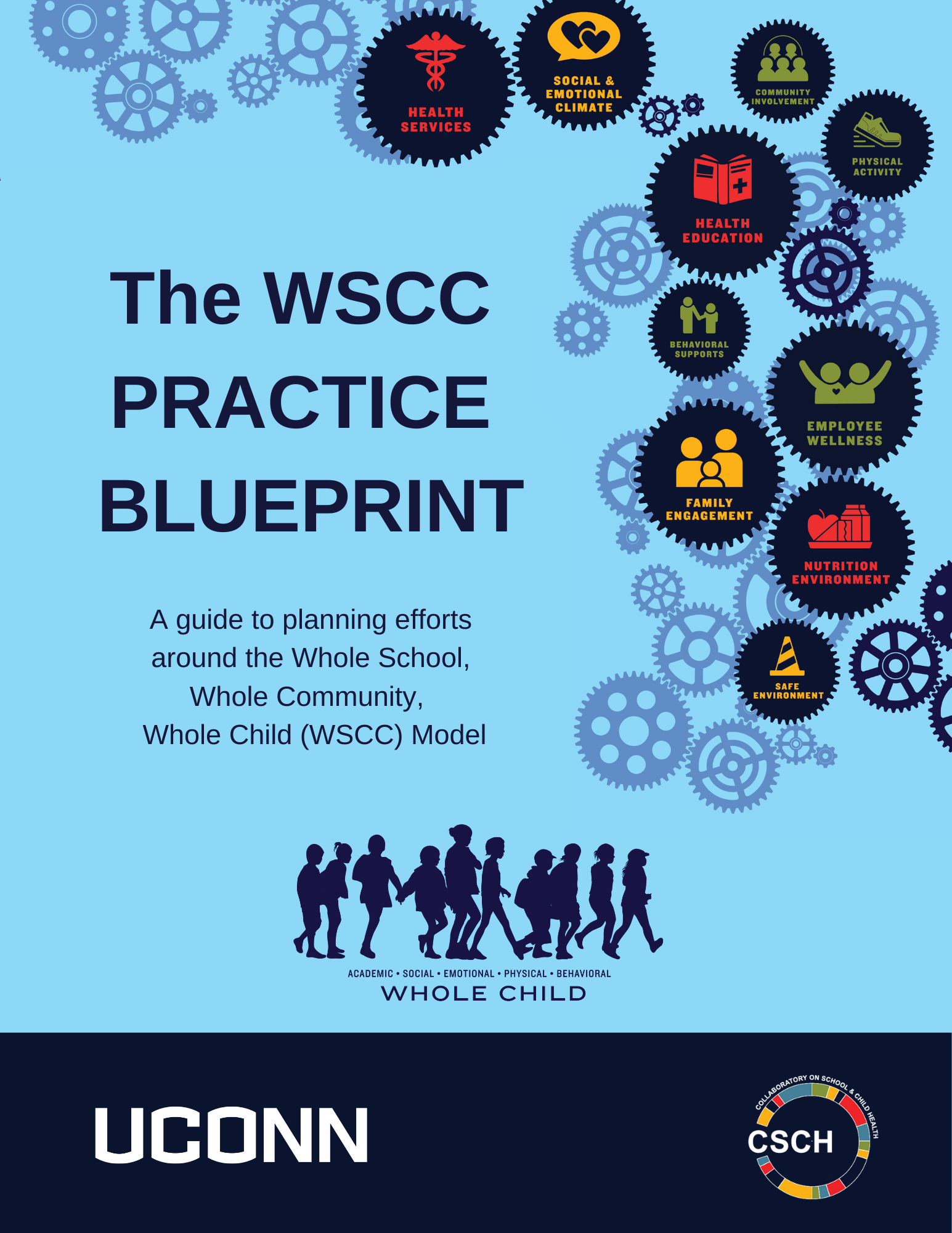

The Policy Blueprint is for school teams who are interested in the successful implementation and sustainment of Whole Child policy initiatives, with a particular focus on the need for coordination and integration of efforts.

The Practice Blueprint is for school teams who are interested in improving their practice alignment with the WSCC model and in successful implementation and sustainment of WSCC Practices as aligned with integrated multi-tiered systems of support (I-MTSS).
WSCC Blueprinting Resources
Listen to our CSCH Podcast Episode or read our CSCH Brief explaining the WSCC Blueprints and why we made two!
How to Complete the Practice Blueprint
The WSCC Blueprints can be completed in a number of ways: over a series of sessions, in a longer chunk of time over professional learning time, or as a revisit after completing the full blueprint once. We recommend a 10-session structure for completing your blueprinting work. Each Practice Blueprint session (including reading) is expected to take approximately 30-45 minutes to complete. Depending on your schedule and needs, you can modify this schedule or combine sessions.
Download individual policy blueprint sessions through the accordions below or download the full WSCC Practice Blueprint.
Individual Sessions – WSCC Practice Blueprint
Intro to the Blueprint (Sessions 1-3)
In these sessions, you will learn about the Whole School, Whole Community, Whole Child (WSCC) Model, and engage in activities to set you up for success in your blueprinting process.
- Session 1 – To create a multidisciplinary team to lead the WSCC blueprinting work
- Session 2 – To gain familiarity with the WSCC model and available resources for strengthening knowledge
- Session 3 – To understand the rationale behind the blueprinting process and begin to think about WSCC policies and practices in your setting
Exploring Context (Sessions 4-5)
Evaluating Directions (Sessions 6-7)
In these sessions, you will examine opportunities to strengthen whole child initiatives by implementing, refining, or de-implementing.
- Session 6 – To identify WSCC domains that are areas of strengths, weakness, opportunity, and tension in your setting’s practices
- Session 7 – To identify opportunities to strengthen WSCC practices in one chosen domain
- Supplemental Materials – To consider WSCC practices at each tier of implementation (universal, targeted, select) and strengthen practices in each tier
Establishing Actions (Sessions 8-10)
In these sessions, you will plan for success by identifying action steps, addressing anticipated barriers, and creating plans for monitoring implementation.
- Session 8 – To confirm your setting’s readiness to engage in each potential practice change and narrow down to 1-5 practice changes to pursue
- Session 9 – To create an action plan for each practice change you are going to pursue with plans for progress monitoring and optimizing implementation
- Session 10 – To identify the policy changes that need to be made to align policy with new practices
Resource Library
Resources that we found most helpful to guide our thinking.
WSCC MODEL
Center for Disease Control WSCC Website
Explains the WSCC model and provides resources.
Multiple articles collectively provided important lessons learned from the initial work in coordinated school health and whole child initiatives and offered directions for next steps as the WSCC model is advanced.
The NASBE State Policy Database on School Health
Searchable database of all identified statutory and regulatory language related to the WSCC.
WHOLE CHILD
Provides an overview of schools as a context to serve as assets or risks to equity, discusses theory and science using a WSCC lens and provides directions for science and practice in advancing a positive education approach.
Comer School Development Program
Describes the origins and success of the School Development Program.
Reviews research demonstrating that student learning and development depend on affirming relationships operating within a positive school climate.
Provides resources and professional development for practitioners, families and policymakers looking to focus on Whole Child systems.
MTSS
Comprehensive, Integrated, Three-Tiered Model of Prevention (Ci3T)
Assists schools in creating a comprehensive systems-oriented approach to integrate efforts to support students; provides data-informed professional learning.
OSEP Technical Assistance Center on Positive Behavioral Interventions and Supports
PBIS offers practical resources related to implementation in education settings, with tremendous examples that provide both the detailed framing within multi-tiered models (prevention through intensive intervention strategies) and the widespread familiarity among educators nationally.
Center on Multi-Tiered Systems of Supports (from the American Institutes for Research)
Supports states, districts, and schools across the country in implementing an MTSS framework.
IMPLEMENTATION
Group that supports sustained, effective practices that promote equitable outcomes for students and educators through collaboration, interdisciplinary research, and resource sharing.
The EPIS model, developed by Dr. Greg Aarons and colleagues, was created with the intent to identify and improve system, organization, and individual factors related to implementation of evidence-based practices and care quality in health care and public sector settings.
National Implementation Research Network
Offers critical tools for developing thinking about initial stages of implementation for WSCC, and activities to structure team decision making.